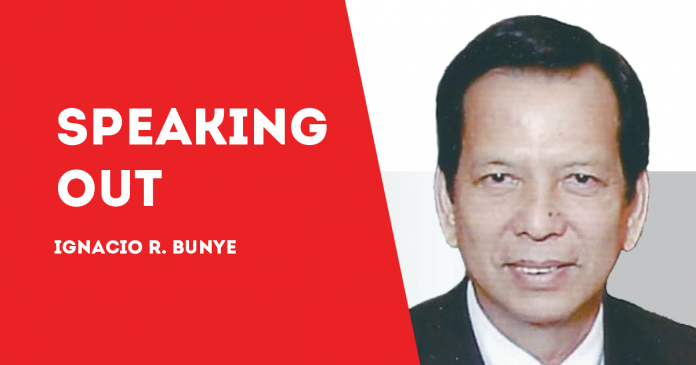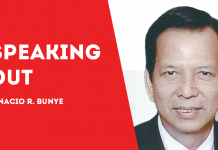
THEY call it by different names.
Here in the Philippines, it is called State of the Nation Address or SONA for short. In the US, it is State of the Union. In Great Britain, it is called Speech from the Throne or The Queen’s (of King’s) Speech. It is Prinsjesdag in the Netherlands. There is no equivalent name in Japan but the speech, likewise, is delivered during the first session of Parliament.
Local chief executives have also come up with their own versions since 1988. So it is common for us to now read or hear about the State of the Province Address (SOPA), State of the City Address (SOCA), State of the Municipality Address (SOMA). I am not sure though if there is an equivalent for the Barangays or SOBA.
The day after the SONA, the political opposition in Congress, as represented by the Minority Floor Leader, delivers what has come to be known as CONTRA SONA. The Opposition calls this speech “The True State of the Nation”.
Unlike the well-attended SONA, with all its media hype, the CONTRA SONA is usually delivered before a half-empty assembly, while most legislators – be they pro-Administration or Opposition – are having coffee at the South Lounge.
President Fidel V. Ramos, who during his own term delivered 6 SONAs, jokingly refers to an imaginary speech which contains a people’s wish list of items which should have been included, but were not, in a SONA. PFVR calls it SANA.
The ceremonies in the Philippines and in the United States have many similarities. The principal reason: In both countries, the functions of Head of State and Head of Government are exercised by the same individual – the President.
Contrast this with ceremonies in Great Britain, where the Queen is Head of State, while the Prime Minister is Head of Government.
Both in the Philippines and in the US, the practice is based on a constitutional mandate which requires the Chief Executive to inform Congress of the state of the nation and to recommend such measures as may be necessary and expedient.
Since the time of President Quezon, every Philippine President personally appeared every year before Congress to deliver his message. The only exception occurred in 1950 when President Quirino, who was then recuperating from an illness, delivered his SONA via radio from his hospital bed in the United States.
In the US, early presidents starting with Thomas Jefferson, discontinued George Washington’s practice of personally appearing before Congress. Jefferson and the rest simply submitted a written report. Woodrow Wilson resumed the practice of personal appearance.
Here in the Philippines, the President delivers the SONA before a joint session of Congress. In attendance are almost all the members of both houses, including those who are perennially absent during the regular session.
The lady legislators and the congressional spouses usually come in their most elegant Filipiniana. Broadcasters usually have a field day describing who is wearing what (and by whom) during the congressional fashion show.
Also in attendance are members of the judiciary, cabinet members, members of the diplomatic corps, a carefully screened guest list, and of course, the duly accredited media.
Occasionally, some legislators – strongly opposed to the President – leak to media in advance their non-attendance claiming “waste of time.”
Outside, militant groups, year in and year out, make a show of marching with clenched fists towards the Batasan only to be stopped (“harassed” according to the militants) by the police. But during the first year of President Duterte, the militants, instead of staging a “kilos protesta”, held a “kilos suporta”. At that time, a honeymoon between President Duterte with the leftists was in effect.
The US has institutionalized a practice (The Designated Survivor) as a result of 9/11. Accordingly, one cabinet member does not attend the State of the Union address in order to provide continuity in the line of succession in the event that a catastrophe disables the President, the Vice President, and other succeeding officers gathered in the House chamber.
Additionally, since 9/11, a few members of Congress have also been asked to relocate to undisclosed locations for the duration of the speech to form a rump Congress in the event of disaster.
In Great Britain, it is the Queen who reads a speech prepared by the Prime Minister. It is called Speech from the Throne. The speech is delivered during the State Opening of Parliament – an occasion marked by pageantry steeped in British culture and tradition. The State Opening of Parliament was based on tradition which dates back to the early 14th century.
Unlike here in the Philippines, where every single applause is tallied and duly reported by the media, the Queen’s speech is met with dignified silence, with the attendees neither applauding nor showing dissent. The Queen, for her part, reads the speech in a neutral, almost monotonous tone./PN


